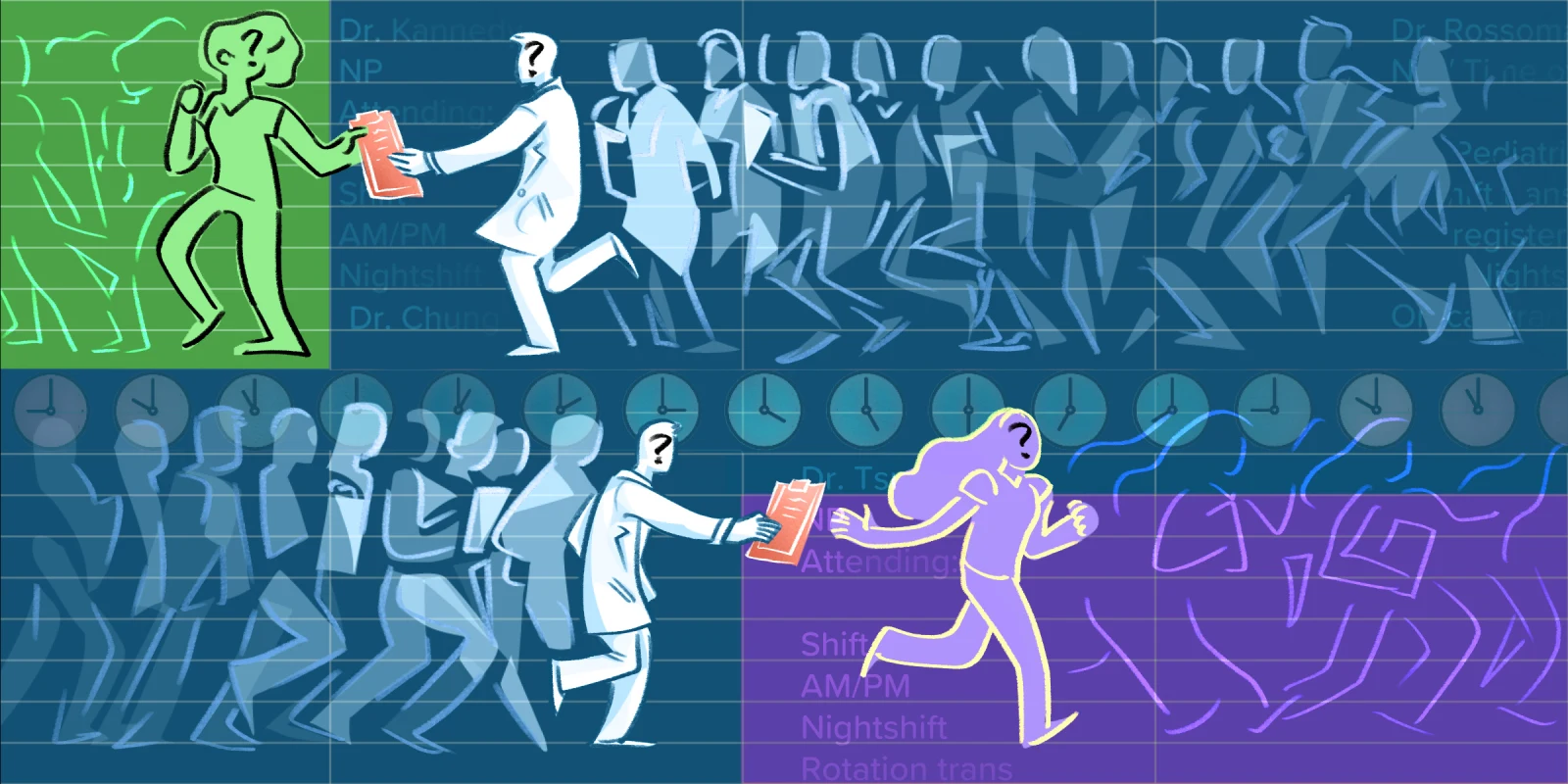My surgery internship at a well-known urban teaching hospital was brutal, and the month I spent on the cardiac surgery service was perhaps the most difficult. Somehow, my fellow interns and I survived the grueling month of being on call every other day, with endless work, sleeplessness, terror, humiliation, minimal useful teaching, and mountains of mindless clerical work. We learned many things in the process.
As raw recruits thrown headlong into the battle, we became ruthlessly efficient at admitting and preparing patients to undergo open heart surgery, and managing (with little preparation and sometimes less knowledge) a host of extremely sick postoperative patients in the cardiac ICU (CICU), the step down unit, and floor. We came to understand that all of us, the interns, residents, fellows, attendings, and PAs, were cogs in the machine of a busy surgical service. In addition, we learned to understand better our own place in the practice of medicine.
On the cardiac surgery service, each work day ended with a “sign out,” a time-honored tradition that signaled the completion of the day’s work by each and all. Every consult, lab, echocardiogram, and X-ray had theoretically been completed and approved. The last postop patient had rolled out of the OR, the last bloody bandage had been changed, and the last patient to be admitted for the next day’s surgery had been tucked in. At sign out, the weight of responsibility for the entire cardiac surgery service was transferred to the narrow shoulders of the intern on call. It was understood that by signing out, each member of the team avowed that they had faithfully completed their day’s work, crossing every “T” and dotting every “I” they were charged with.
However, it might come as no surprise that in medicine, things are not always as they seem. As interns, we came to know and dread these things. Once we understood these “lies,” we could laugh and survive. Here then, written in blood, sweat, and laughter are the five cardiac “lies.”
1. The book is tight.
This idea was intended to strike fear in the heart of any intern. “The book” was the service’s essential medical record, predating the electronic options of today. It was a simple black folio of approximately 100 pages into which all pertinent information on each and every patient was entered by the intern, by hand, and updated constantly as new results came in. The intern on call carried the book on rounds, and they were expected to produce, on demand and with 100% accuracy, the result of every lab, test, consult, imaging study, and Swan-Ganz catheter reading available, on each and every patient. The intern had no other function on the cardiac surgery service than to regurgitate lab results. The book was the meager pillar upon which the intern’s performance and final grade on that rotation would stand or fall. A missing lab or a forgotten consult was tantamount to disgrace. “The book is tight” meant the intern on call could rely on the book with their life.
2. The postops are stable.
This, of course, was a well-intentioned lie, since, by their very nature, patients with severe heart disease who just had their sternums sawed open with a power saw, their heart stopped, their circulation shunted into a bypass pump, and the arteries of their heart re-routed with delicate grafts, were inherently and sometimes explosively unstable. No one could foresee which of the eight to 12 patients who had entered the CICU every afternoon might suddenly decompensate and crash, but it was likely one or more of them would.
3. She was dry when we closed her.
The process of cardiac bypass surgery in that time required intensive and complete anticoagulation, and surviving surgery afterward required the bleeding to be stopped. It was usually sometime around 11 p.m. when the intern was called to decide if a bloody, saturated chest dressing just needed to be changed, or if the patient needed to go back to the OR for an emergency second look. Naturally, this always happened when it was just a little too late to call the cardiac fellow back in. Woe be to the intern who chose the wrong path.
4. The lady in the medical ICU (MICU) is stable.
Another lie with a kernel of truth, since the cardiac surgery service was usually monitoring several extremely sick patients who had been admitted to the MICU. Though none of the MICU patients crossed the threshold of requiring urgent cardiac surgery at first, at least one of them eventually did. And it was usually at about 3 a.m. when the intern got called to be the first on the scene.
4. The PAs will help you with the workups.
This was an ironic lie that was exclusively told by one intern to another. The highly skilled and long-tenured cardiac surgical PAs were afforded immeasurably more status than the lowly interns, it seemed to us. They were allowed to leave the hospital after their allotted shift was finished, no matter how much work remained to be done. It wasn’t that the PAs could dump work on the interns and go home that hurt the most, it was that only they, and not we, were ever allowed to enter the sanctum of the OR. We were told that an unskilled intern couldn’t possibly harvest a saphenous vein that could be relied upon as a bypass graft to sustain a patient’s life. We understood, and had to accept, that time and the urgent business of cardiac surgery did not allow for teaching of interns to take place in the OR. Unfortunately, it often didn’t occur anywhere else, either. Teaching was not on the agenda.
And so we told each other “lies”; we worked, we overcame, and we learned. Bright-eyed enthusiasm was tempered by reality. In retrospect, that difficult cardiac surgical rotation served me well, better perhaps than others spent in more friendly climes. I learned that medicine is as much a business as a calling, and the people in it are no more infallible than in any other profession. I realized that big busy surgical services are enormously important to hospitals and doctors alike, and things can get shouldered aside in the name of patient throughput. I learned that a system that gathers very sick patients in large numbers is going to produce errors, and that there will be some negative outcomes, but that the system was (and still perhaps is) geared to treat errors and omissions harshly. I learned to trust some colleagues, and treat others with healthy skepticism. And I learned to laugh.
What lessons have you learned from your surgical internship? Share your experiences in the comment section.
Dr. Henry DeGroot is an orthopedic surgeon who lives in Key West, Florida and practices locums orthopaedic surgery in multiple states. He received his medical degree from University of Chicago Division of the Biological Sciences The Pritzker School of Medicine and has been in practice 30 years.
Illustration by April Brust







